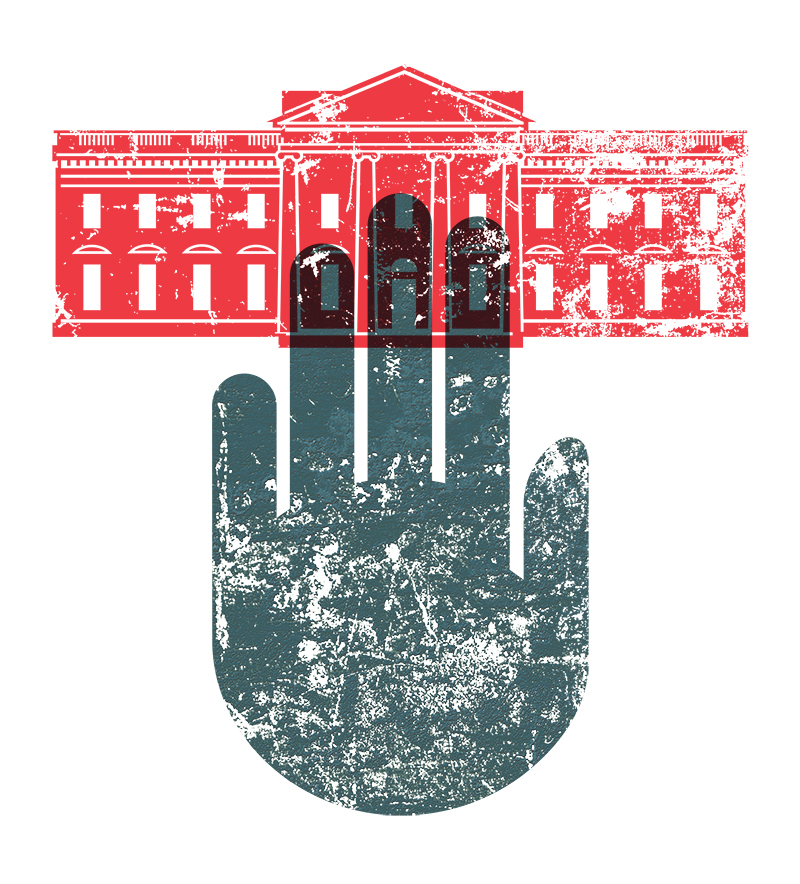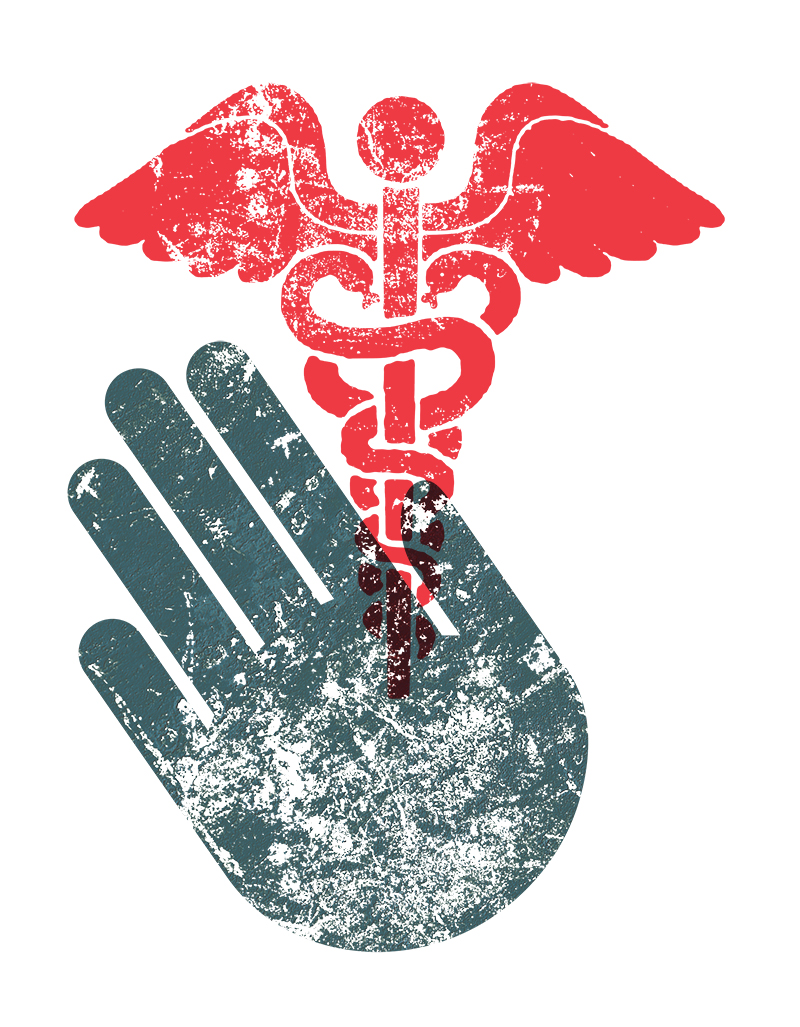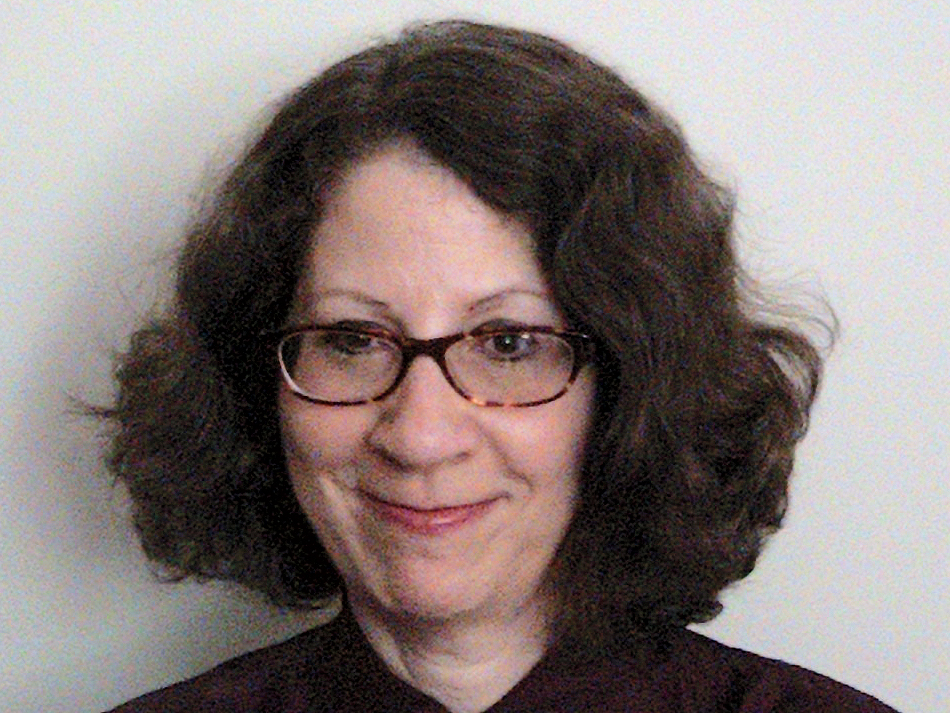
When a chemical spill contaminated the drinking water of hundreds of thousands of people in West Virginia in January, Charleston Gazette reporters Ken Ward and David Gutman repeatedly asked the Centers for Disease Control and Prevention (CDC) how it calculated the acceptable toxicity levels.
For nearly a week, the federal agency ignored their requests for interviews. In the meantime, state officials, citing the CDC standards, lifted a “Do Not Use” water order for residents in some areas. Finally, when the CDC advised that pregnant women should not drink the water, a frustrated Gutman called the agency director at home. The CDC chief told him to contact the press office and hung up.
One reporter was unable to get permission from the CDC to speak to a scientist about a massive tuberculosis outbreak in Florida. Another reporter couldn’t get the FDA to comment on a federal investigation into Rhode Island doctors who illegally bought contraceptive devices from outside the U.S.
While much of the media criticism about the lack of government transparency has focused on the White House and national security, many journalists who cover federal health care agencies say they, too, have experienced an unprecedented amount of secrecy during the Obama administration, an administration that describes itself as the most transparent in history. Medical writers and investigative journalists complain that they’ve been stonewalled, barred from talking to health agency staffers and experts, or required to submit questions in writing, only to get “talking point” responses. One reporter was unable to get permission to speak to a scientist about a massive tuberculosis outbreak. Another couldn’t get anyone to comment on a federal investigation into doctors who illegally bought contraceptive devices from outside the U.S.
“You ask to interview somebody and they send you a canned e-mail. They won’t let you interview the scientist who worked on it,” says Ward, a reporter at the Gazette for more than two decades. “They’ve shown a complete lack of respect for the public in the way they operate these agencies.”
And it’s not just reporters who are protesting. Some scientists and consumer groups are extremely concerned about federal agencies preventing information from being released or impeding experts from talking to the media. “The best way for a reporter to get to the truth is to be able to talk to a scientist closest to the problem or the issue,” says Celia Wexler, a lobbyist for the Union of Concerned Scientists, a nonprofit science advocacy group. “What we want from public information officers at these federal agencies is to make it easier to get ahold of the right people, not to be the gatekeepers or to make it more difficult.”
Journalists have a long tradition of sounding the alarm about public health issues, such as the dangers of thalidomide, the Tuskegee syphilis study, and the Reagan administration’s lack of attention to AIDS. Reporters worry that when government agencies restrict their access to information, it limits the public’s ability to get an unvarnished perspective on health care policy and public health dangers. Some of these issues came to light last year with the botched start-up of the federal health care insurance website and the administration’s reluctance to disclose details about what was going on. But health care journalists say they’ve been running into roadblocks with the Obama administration long before the Affordable Care Act’s inauguration.
In 2011, for example, the U.S. Department of Health and Human Services (HHS) blocked access to an online public database of physician discipline and malpractice payments that had been used by reporters to expose flaws with the oversight of troubled doctors. The data had been available online for years. HHS removed the file from its public website after a doctor complained that information about him had been used improperly. Following protests from journalism groups and consumer advocates, the administration restored the file but put restrictions on how the data could be used.
That same year, the Argus Leader in Sioux Falls, South Dakota, sued the U.S. Department of Agriculture (USDA) after it rejected a Freedom of Information Act (FOIA) request for data about food stamp payments to individual retailers. The Association of Health Care Journalists (AHCJ) and other journalism groups wrote to the USDA, urging it to end the secrecy surrounding the multibillion-dollar program. The health care journalists also called for Congress to authorize the USDA to collect and make public information about which products are purchased with food stamp dollars, saying it was important to the public policy debate about childhood obesity. In January, a federal appeals court rejected the USDA’s argument that it was prohibited by law from disclosing the food stamp payment information, and sent the case back to the lower court.
 A South Dakota newspaper’s legal battle for data about food stamp payments made to individual retailers is still alive, following a federal appeals court ruling that rejected the government’s reasoning for keeping the payments secret
A South Dakota newspaper’s legal battle for data about food stamp payments made to individual retailers is still alive, following a federal appeals court ruling that rejected the government’s reasoning for keeping the payments secret
“Having a posture of antagonism toward the media is tantamount to being antagonistic to the general public,” says Irene M. Wielawski, a former Los Angeles Times reporter who chairs the AHCJ’s right-to-know committee. “One thing lost in all of this tension and this combative stance against the media is that they are really cutting off information that’s vital to their mission.”
The AHCJ has protested restrictions on information and sent reporters’ complaints to federal health care agencies. Its leaders have met with agency officials and it has quarterly phone calls with the HHS public information chief.
Federal health officials insist that they are committed to openness in government. HHS, the nation’s top health care department, would not agree to an interview with Nieman Reports, but spokeswoman Joanne Peters issued a statement: “We seek to be as transparent as possible, strive to make subject-matter experts available and provide information in a timely manner … Public affairs staff respond to many inquiries throughout the day, working hard to accommodate deadlines. These examples [cited by Nieman Reports] represent a very limited number of circumstances that the public affairs leadership addresses when they arise and are not reflective of what is overall dedicated and prolific work being done by public affairs staff at HHS and its agencies.”
Reporters say they understand that there has been a proliferation of websites and blogs and that the volume of requests for comment about health care issues has ballooned. But that doesn’t mean press officers should routinely require them to submit questions in writing, and then respond with “talking point” answers or “not for attribution,” if they respond at all. Felice Freyer, vice chairwoman of the AHCJ’s right-to-know committee and a medical writer at The Providence (R.I.) Journal, says that while some members have had positive experiences dealing with press officers, many others haven’t. They’ve faced long delays or been ignored. They’ve been prevented from talking to experts, and even when they do, there’s often a press staffer present or on the phone, which can impede discussion.
In 2012, Stacey Singer, a health reporter at The Palm Beach Post, spent months digging through public records and uncovered information revealing that Florida officials had concealed the worst tuberculosis outbreak investigated by the CDC in 20 years. When she sought the CDC’s permission to talk to an epidemiologist who had written the outbreak investigation report, an agency press staffer told her to get in touch with her state health department. The previous month, Singer had contacted another CDC scientist who had authored a published study describing a 2009 TB outbreak in Florida. The scientist was willing to chat, but said Singer first needed to go through the CDC press office, which nixed the interview. “In the past, I have always been able to talk to the authors of these papers,” Singer says. “To have the CDC press office prevent me from speaking to scholars was unprecedented and disturbing.”
These actions had several impacts on public health, according to Singer. The public wasn’t aware that many of the TB patients were homeless and for at least two years, the state had placed them in a cheap motel in Jacksonville. If the CDC had informed the public about what was going on, Singer said, it might have prevented major cuts in the state health department’s budget and led to a public outcry for more resources to contain the outbreak.
The Charleston Gazette’s Ward said he, too, was shocked at the CDC’s lack of response during the West Virginia chemical spill in January. It was only after his colleague called the CDC director at home that a press officer responded and set up an interview with a top medical official. The CDC also held a press conference by phone, and public affairs director Barbara Reynolds apologized to Ward. Reynolds said there was a breakdown in communication on her office’s end, and she has taken steps to improve the “triage system,” especially when reporters call about an emergency.
“It’s just utter nonsense when they talk about being so transparent,” Ward says. “I have not found any journalist who thinks federal agencies are more open now than they were under the Bush administration.”
In early March, the agency denied Ward’s petition for an expedited review of a FOIA request about the chemicals’ effects on pregnant women. CDC officials wrote that there was no “urgent need” to inform the public about the issue. That month, David Cuillier, president of the Society of Professional Journalists (SPJ) board of directors, cited Ward’s case when he testified before the Senate Judiciary Committee in Washington about the lack of transparency in the Obama administration.
The SPJ is especially concerned about transparency because “huge cuts” in the industry have weakened journalism, Cuillier says. “Newspaper companies are less willing to sue over secrecy. Without the watchdogs barking and biting as hard as they did in the past, I think we’re seeing government taking advantage of that.”
 Ken Ward, a reporter for The Charleston Gazette in West Virginia, was shocked by the CDC’s lack of response during a major chemical spill in January. He said, “I have not found any journalist who thinks federal agencies are more open now than they were under the Bush administration”
Ken Ward, a reporter for The Charleston Gazette in West Virginia, was shocked by the CDC’s lack of response during a major chemical spill in January. He said, “I have not found any journalist who thinks federal agencies are more open now than they were under the Bush administration”
The Providence Journal’s Freyer cites her own experience in 2010, when she tried to get information about a Food and Drug Administration (FDA) investigation into more than two dozen Rhode Island doctors who had illegally obtained hundreds of intrauterine devices (IUDs) from outside the U.S. After Freyer sought comment for a week, a FDA press officer said only that the agency was “continuing to look into these cases.” Four days after Freyer’s story was published, the FDA website mentioned the Rhode Island controversy and warned consumers not to use unapproved IUDs.
Erica V. Jefferson, the FDA’s acting assistant commissioner for media affairs, says her agency is not allowed to disclose confidential information during an investigation, which can be frustrating to reporters. She says that in Freyer’s case, her office also may not have been able to quickly get information from technical experts.
The FDA press office does allow experts to speak directly to reporters who call them, but asks that they at least notify the press office, according to Jefferson. However, she said, many experts have “discomfort and suspicion” dealing with the media and prefer to have reporters go through her office.
Journalists who’ve been covering federal health care agencies for decades remember when things were different. Trudy Lieberman, a health reporter at Consumer Reports, recalled when she used to “waltz into” the FDA general counsel’s office to get information: “Now, at FDA, you are lucky if you get somebody to return your call. They tell you to go to the website.”
Kathryn Foxhall, a freelance health reporter who has been writing about federal agencies for nearly 40 years, became so outraged that she and two other journalists formed an organization called Stop the New American Censorship, which is trying to raise awareness about the issue. “When reporters are blocked and blocked and blocked, there’s this huge amount of information and perspective that the public is not getting,” Foxhall argues.
Foxhall says the transparency controversy is getting some attention in Washington. In August, the National Press Club sponsored a heated debate between reporters and press officers that was covered on CSPAN-2. Foxhall says Congress also needs to “step up” and take a more active role supporting government transparency because “they write the money bills and the powers-that-be have to come before them.”
In the meantime, journalists offer some tips for colleagues facing government roadblocks:
- Find out who you want to talk to within an agency and try to contact them directly.
- Refuse to submit questions ahead of time or let a press officer moderate an interview or dictate who to interview.
- Write about it whenever an agency thwarts or manages an interview.
- Document every incident of stonewalling or denial and keep a running list.
- When calling or e-mailing the press office, be clear about the information you’re seeking and your deadline. If someone promises to get back, ask when that will be; follow up every call with an e-mail.
- If a press officer is unresponsive, contact his or her superior and work your way up the chain of command.
- Complain to members of Congress or top agency officials.
- Contact the FOIA ombudsman at the Office of Government Information Service.
“The problem isn’t going to go away, and our efforts are absolutely not going to go away,” says Freyer. “We’re going to continue to fight.”
Jenni Bergal, a freelancer in the Washington, D.C. area, has been a reporter at the Sun-Sentinel in Florida, and an editor at NPR



